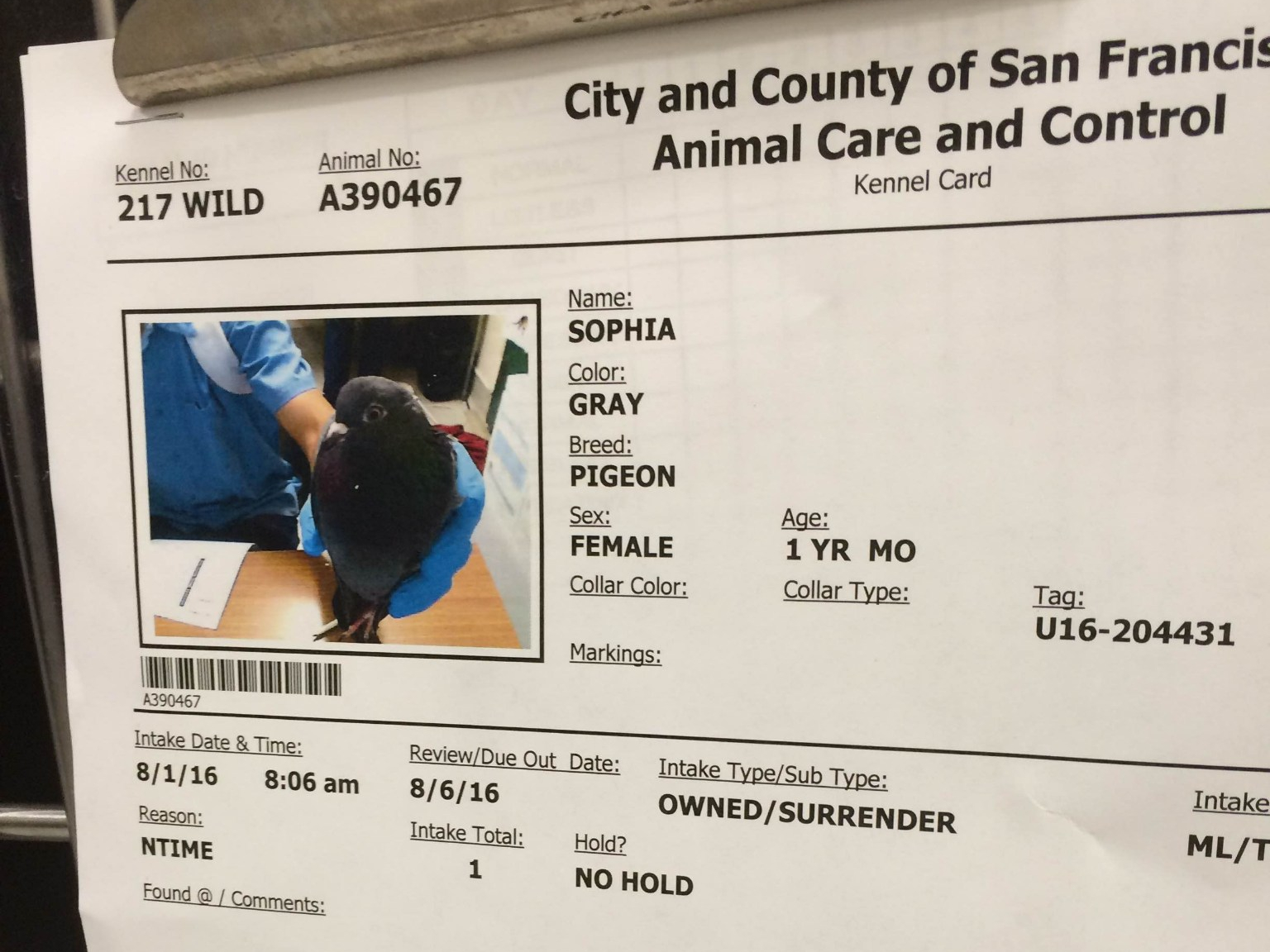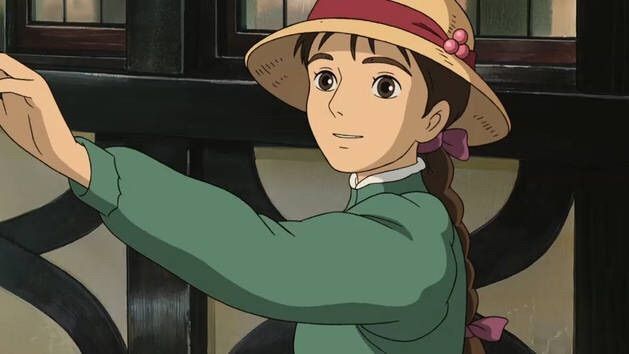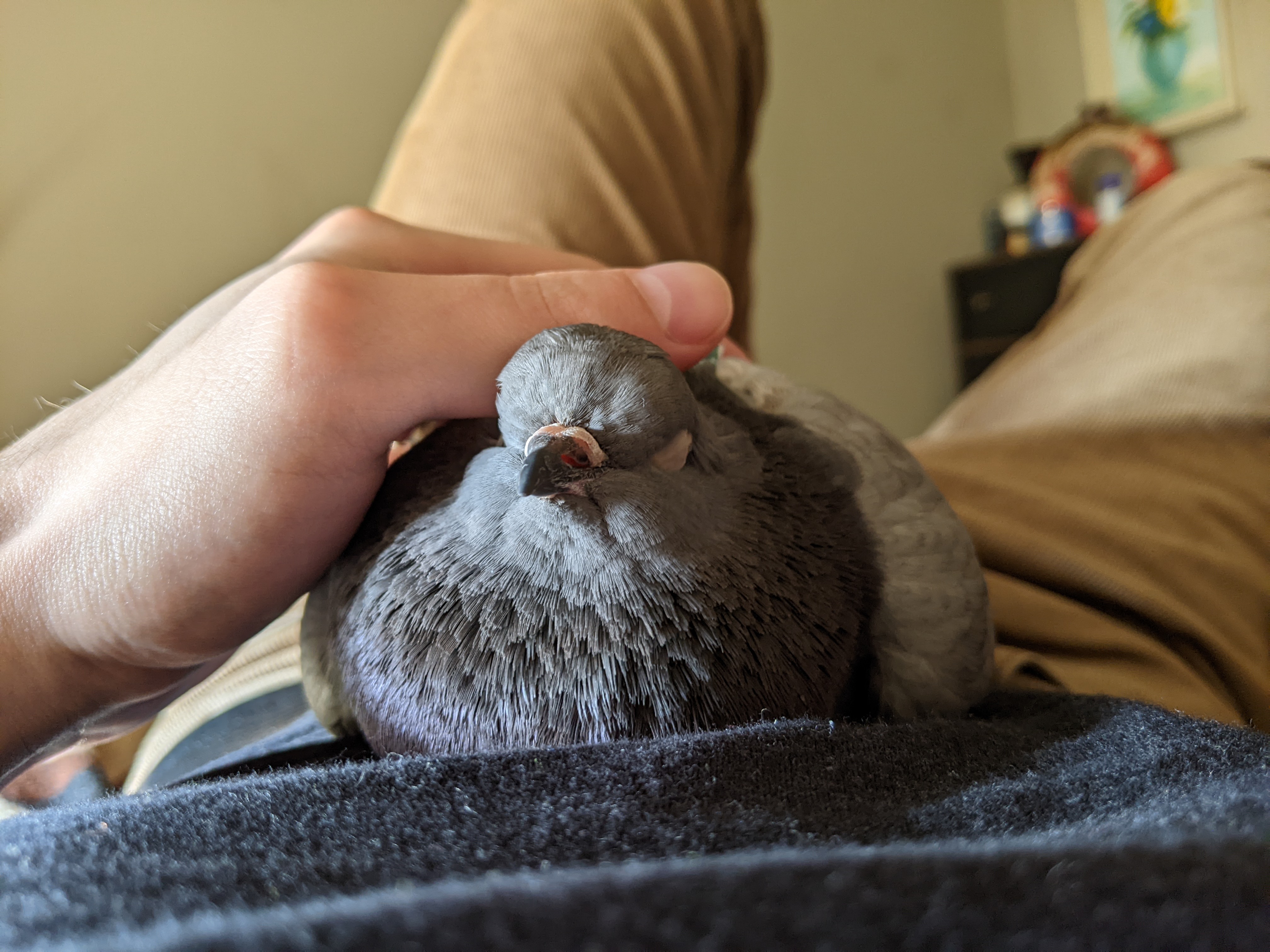I have a pet pigeon
I have a pet pigeon. Her name is Sophia, and she’s one of the best things that’s ever happened to me.
Many people raise and breed domestic pigeons for a variety of reasons, but not typically as companion animals, like Sophia.
Sophia just sort of entered my life unexpectedly. In August 2016, I was at the Nihonmachi Japanese Street Fair in San Francisco walking around and glancing at the vendors on either side of the street. There were artists, massage therapists, the local police department, the SPCA, and then, a booth where people were holding pigeons.
I’ll admit, I’m a bit contrarian in nature. I’ve always felt that pigeons are actually really beautiful, misunderstood animals that are really just victims of their own success. I certainly never imagined having one as a pet though. I was very curious to learn more, so I approached the booth.
Palomacy Pigeon & Dove Adoptions, the banner draped across the table read.
All of the volunteers were already speaking with other curious folks like myself. So, I watched from a few steps back and began to learn about domestic pigeons, caring for pet pigeons in the home or in an outdoor aviary, and, sadly, how all too often people use, abuse, and lose them.
Dove releases are one such example. Most people are surprised to learn that the birds often released at weddings, funerals, remembrances, and some religious events, aren’t “doves” at all—at least not in the traditional sense. They are actually homing pigeons with all white feathers.
Pigeons that have been bred and kept in captivity for racing, sport, or other human desires don’t often do fair well in the wild. They aren’t just simply tamed like a parrot, they are a a true domesticated species like dogs, cats, cows, and horses.
When it comes to dove releases, the birds typically fly back home to the dove release company. But a stark-white pigeon is an obvious target for birds of prey, and unfortunately they don’t always make it all the way home.
Pigeons are also bred for meat. You may have seen it on the menu of a fancy restaurant before: squab. Squab comes from four-week-old king pigeons, a breed of pigeons that are bred specifically for human consumption. Like chickens, they have been selectively bred to produce as much meat as possible, and as a result the adults are very large, heavy birds they can’t fly very well (I call them “toaster ovens with wings”).
You can usually find these birds at live meat markets. Sometimes kind-hearted, well-intentioned individuals purchase them and release them to save them from being slaughtered. Unfortunately, these birds have spent their entire life in captivity, they can’t fly well, and their all-white coloring makes them very obvious targets for birds of prey. They usually don’t last very long in the wild, and sadly may end up dying a more painful death than they would otherwise.
Palomacy
Palomacy was founded by Elizabeth Young while working with San Francisco Animal Care and Control. Pigeons, especially white king pigeons, are brought in to SFACC all the time. But the problem is that once they’re there, not many people are keen to adopt and care for them, and so all too often they end up being euthanized. The fact is, almost anyone who’s worked with pigeons will tell you how sweet they can be, but at the same time, understandably, most aren’t going to bring one home as a pet.
Elizabeth found herself with so much heartache for these innocent birds that she would do anything to get them out of the shelters and into homes. So, she started Palomacy.
Palomacy doesn’t breed pigeons. Palomacy doesn’t keep pigeons that can survive on their own. What Palomacy does is educate and spread the word about domestic pigeons. Palomacy routes sick and injured that can eventually be released to to pigeon-friendly wildlife rescues, like Wildcare in San Rafael. But if a bird is too injured, too domesticated, or too disabled to survive in the wild, Palomacy will temporarily foster them in one of many volunteer aviaries around the San Francisco Bay Area and try to pair them with a loving, forever home.
In a perfect world, organizations like Palomacy wouldn’t need to exist. But in the imperfect world that we live in, the work Palomacy does gives these beautiful birds a second chance at life.
“Palomacy” is a portmanteau of paloma, the Spanish word for pigeon, and diplomacy.
Palomacy is pigeon diplomacy.
Sophia
After learning about Palomacy, I felt like I had to do something.
There was one bird who had just made it to animal control that Palomacy couldn’t take in because they were overfull. She would soon be at risk of being put down. Elizabeth showed me a photo on her phone of the bird’s intake form.

In the notes section at the bottom, the following was written by hand:
Per owner bird should not be released, will not survive. Has been in captivity all her life.
Sophia had been found in someone’s backyard after having fallen from the nest. The homeowner brought the bird in and read about how to care for her. After nursing her back to health, he named her after Sophie Hatter from the animated film Howl’s Moving Castle produced by Studio Ghibli.

He cared for her for about a year, but eventually surrendered her to animal control because he could not give her the attention that she needed.
When I saw the photo of Sophia, I was smitten. I stepped aside and called my landlord, and asked if it would be okay to bring a bird into my apartment. I figured this would be a difficult ask, so I slightly massaged the truth. When he asked what kind of bird it was, I said that it was a “rock dove”.
The pigeons we all know (and maybe love) today, Columba livia domestica, are a sub-species and descendant of the cliff-dwelling Rock Doves of the Mediterranean, Columba livia. The rock dove was domesticated thousands of years ago, and has been living with humans ever since. “Rock dove” and “rock pigeon” are generally interchangeable, as I understand it.
To my surprise, he was perfectly fine with it. I guess I shouldn’t have been too surprised, he was a pretty easy-going guy. The people who lived above me had five dogs.
I got my apartment ready for her, bought some pigeon pants, and brought her home the very next weekend. I can remember the Uber ride back to the apartment and trying to hold the box as level as I could through all the twists, turns, and hills of San Francisco. I can easily recall the sound of her little black claws scratching the bottom of the cardboard carrier as she tried to keep her balance.
When I took her home I gave her plenty of space and let her hang out on one of the shelves in my room. After a day or so she began to feel more comfortable around me and would fly to the foot of the bed when I was laying on it after work. She’d get a little closer every single day, until finally she hopped up onto the pillow next to mine.
I remember the first time she ever cooed. I was so happy that she was happy.
That one day in Japantown six years ago absolutely changed my life. Adopting Sophia has been one of the best decisions I’ve ever made, and, like many pet owners, I can’t imagine my life without her.

I wish everybody could feel what it’s like to have a pigeon in their life, and to discover just how wonderful and misunderstood these birds are.
So, now we’re volunteers with Palomacy.
We do dozens of events every year. We’re invited to pet adoption events, elementary schools, science museums, zoos, kids’ birthday parties, seed exchanges, and yes, the Nihonmachi Street Fair.
The goal isn’t always to find the birds forever homes. Let’s be honest, most people who stop by the booth aren’t looking to adopt a pigeon, they’re just curious. But while we have their attention, we can teach them about the plight of domestic pigeons and the joys of having pigeons as companion animals
Palomacy is a non-profit organization that relies on donations and the kindness of volunteers to continue operating (fun fact, our most generous donor is Craig Newmark of Craigslist!). If you’ve made it this far, please consider donating. Every dollar goes directly to medical care, bird food, and supplies.
Comments
Loading…